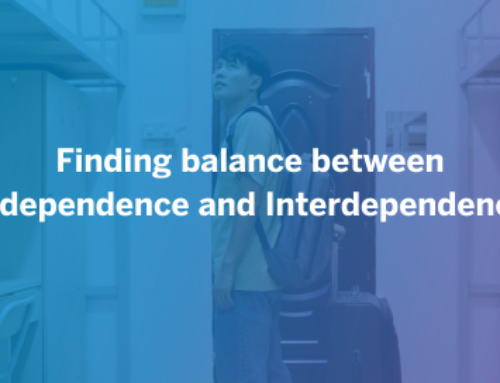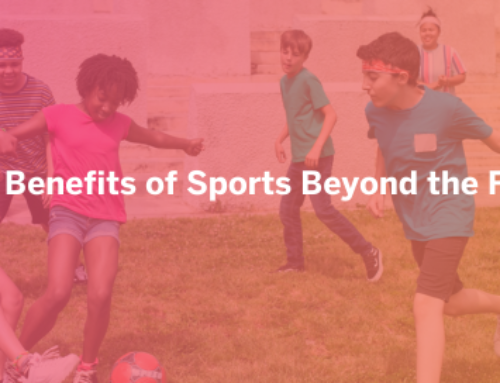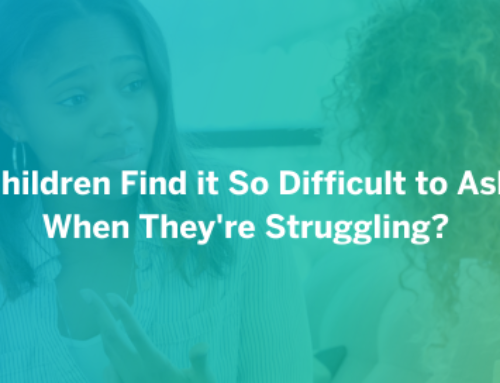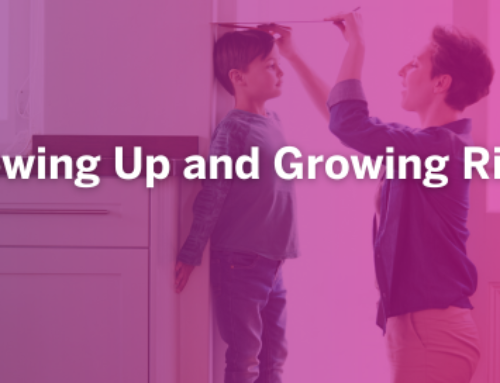
This blog features an in-depth interview with my mother about the course of addiction and the effect it had on her and her child. The goal of the interview questions was to learn from her experience. We offer the perspective of the parent who loved so much, the person whose life was warped by drugs, who believed it could never be her son, who was caught in the debris of the tornado of addiction, and who sees today so many warning signs that she once missed. From each aspect of her experience, we can derive vital lessons for preventing and detecting addiction while also acknowledging the corrosive impact of drug addiction on families. After each question, I briefly discuss the impact of her answer and the lessons that can be gleaned from this experience.
Q :
What conversations do you wish you could’ve had with me looking backwards?
Do you think that there is any message that could’ve changed my perspective and the choices I eventually made?
A:
There is so much I wish I had discussed with you when you were young. You went through so many experiences that you believed meant something was wrong with you. In retrospect, I wish I could have told you that sometimes people feel anxious, scared, and trapped. I wish you knew that we shared so many of the same thoughts that you never had to be alone with or embarrassed about the weird thoughts you were having. When you developed higher levels of anxiety, you had no idea how to channel those feelings. And when you were little and starting to feel different, maybe we could have helped you, supported you, reinforced you and given you support. I think you struggled through so much of that alone and didn’t know how to deal with it and then you began doing things that made you feel worse.
Discussion:
I don’t believe that my mental health struggles and isolation were the cause of the addictive impact of drugs on my life. We addicts come from all walks of life and differ greatly in the inner experience that preceded the drug. I began using compulsively because drugs are extremely addictive and provide unmerited euphoria regardless of context.
However, it is absolutely the case that the state of isolation and shame around my thoughts and mental health experiences drove me towards drugs and alcohol. I always thought something was really wrong with me. I was overthinking so much, and whenever I began to try to disclose my experience, it felt like my words didn’t make sense. The repetitive course of this experience drove me to eventually believe that escapism was the only real option. I looked to others in my high school to provide me with an identity and a story that felt more certain than mine. I was proud to become someone else. Anything but myself. My mother is spot on here.
I want nothing more than to go back to myself in third grade and tell him that so many of us compulsively lie and don’t know why, that so many of us have an inner world of thoughts that gets really weird and doesn’t make sense. I want to tell him that everything he would go through, I understand. This would have changed my life. With no time machine at my disposal, I settle for delivering this message of solidarity to elementary students in every presentation I deliver.
Q:
What would you say to the parent who feels sure that their child is not at risk? What do parents need to know to be better equipped to spot addiction earlier and try to prevent it?
A:
I sure didn’t think we were at risk. I felt like we were such a close family, and so full of love for each other. I had no idea what you were doing to yourself. You were so much more lost than I ever knew. So I think I’d say, do not kid yourself about how good kids are at lying to us. No matter how savvy you think you are — because I was pretty savvy, I’m the one who caught my son repeatedly, but your kid lies. You want to believe the lie that feels the least dangerous and feels the closest to who you think they are. I could never have IMAGINED some of the things you were doing. You were my golden little boy. And though you became emotionally volatile, I chalked that up to other things — to your relationships, to mental health… I didn’t think it was drugs.
The wake up should have been that day you were weaving all over the highway, or when you had that horrifying cough, but it wasn’t clear to me until you called me crying and admitted everything. You seemed so worried and full of sorrow about it. In retrospect I should have freaked and brought you home right then. It was my moment to ask you if there was a real problem. Would you have told me? I don’t know. But I guess what I’m saying is — no one should think they know for sure. And I guess the deal to spot things is, watch your instinct to shape the story to fit what you think is true. It feels awful to be suspicious of your kid, but if you are— or if something happens …don’t let yourself accept the easy answers, the ones that you want to be true. Maybe you’d have broken down and been honest and raw and we could have done something. But you were so guarded and jagged with us for those last couple of years. I guess the other thing I’d say is — be alert for sudden signs of desperation in your kid — the sudden panic “I need you” that we got from you once or twice, and maybe see if you can probe and hit the exact right nerve…..? I don’t know. I wish we could’ve gotten there earlier. I do feel like I missed a million signals. It makes me sad. I can’t help but feel that looking back, we had moments we should have known.
Discussion:
Early detection isn’t just about catching children with drugs. It doesn’t mean being overly suspicious and strict with our children. It is just what my mother said here. It is the willingness to let go of the story about our child that is the easiest to digest and comprehend. I’ve seen parents in family groups of their child’s third or fourth rehab who are still unwilling to accept and genuinely realize that their child is headed for danger. How much easier it would be if it was just a phase. The emotion and sorrow in the answer to this question gives me such sympathy for these parents. It is so hard to see the child that you’ve loved so much engaging in such horrifying behavior.
While the willingness to acknowledge such behavior is a cornerstone of early detection and prevention, my mother touches on many aspects of early detection that are not as obviously related to drug use. Noticing your child becoming emotionally volatile, seeing problems grow and become increasingly intense and sensitive, observing their guard go up and stay up, these are essential signs of addiction. These are vital moments for parents and counselors to try and connect, relate, and reach the child. If the behaviors continue to increase in intensity they may have to intervene and begin to face the reality that this may be more than just mental health issues or the pains of adolescence.
Q:
How did you see drugs change your child? What did that process look like?
A:
I know you got more and more jagged, ragged, withdrawn, and unable to cope. Life became more and more a series of emergencies. I chalked it up to mental issues (which I guess it was) but I think your nerves were jangled and you were losing any idea of how to just cope. Your social anxiety grew; you gradually lost your ability to stick with things and study and be positive and put yourself out there, to order your life. It became more and more overwhelming to support you as your moods swung. It became harder to know where you were heading or how you were going to just get through college, everything felt huge and full of problems and overwhelming. It’s about as far from how you attack the world today as you can imagine. And of course you lied and lied and lied all the time, but I don’t think we realized that till later.
Discussion:
The first ten minutes of my presentations are usually devoted to the struggles I tried to cope with growing up. I had pretty severe executive functioning issues, I lied compulsively, I felt really intense anxiety in middle school, and I turned to video games to cope. I explain that I want them to understand how drugs took these issues, warped them, and destroyed my ability to cope with them. These issues were always a part of my life, and still are today. But my progress on them became entirely stunted once I began to smoke weed.
This is the bottom line – towards the end of high school, some people begin to adopt responsibility and learn to face the noise, and lean into the strange and complex path ahead. Other people begin to run around playing pretend. Real life Peter Pans. While others began to grow up and cope with life, I ran away from my problems. The impact of drug addiction wasn’t just the health issues or the consequences of addictive behaviors, but the complete absence of forward progress. All of those issues from childhood grew. They came back. They got uglier and soon I found myself right where I was in third grade. Confused, lost, and alone.
It wasn’t my anxiety that tore me down. Today, these mental health struggles are strengths, despite the consistent pain that they cause. The trudge forward, the ability to stay on your path in the face of resistance, to continue to move the barriers that fall in your way, to get back on your path when you get knocked off over and over, that is what makes an adult, what builds character, what allows you to grow and learn and develop true relationships with others. My ability to struggle through the process of coping with life as it is was the greatest thing that drugs stole from me.
Q:
Who helped you when things got difficult? Where can parents turn? What helps you now?
A:
Once we knew what was going on, the support group from your treatment center was great because those were people who knew what this was like and could relate. We needed them to get situated and have hope. That’s why I do like to be there for other parents when I can. You need someone who you know is talking to you with zero judgment, not thinking, “oh my kid would never do that, you’re a bad parent.” So find someone who has been there, I’d say — there are so many more of us than people know.
Discussion:
One of the barriers to parents working through their children’s addiction is lack of support. Parents go through significant shame. Earlier in this interview, my mother’s explanation of what she could’ve done differently came with deep sorrow. If only they could’ve done something. To encourage families in our community to better detect and prevent addiction, we must understand the shame that many of them feel in their children’s struggles. It is a real blow to a parent’s pride to be told that they need to acknowledge the really horrifying behaviors that their children are possibly engaging in. When we discuss addiction with children, we find it necessary to bring in a speaker with the lived experience of doing drugs. This contributes to the notion that the children aren’t being judged or scolded. Educating parents about early detection may be similarly better received from a parent who has actually been in the crosshairs of their child’s addiction.
Q:
How do you see addiction differently than you did before?
A:
I’m much more broken-hearted for people. I know that it’s as awful and painful for the person who is addicted as it is for the people around them, in different ways. I know that it’s terrifying to be in it and think about how you can never live the life you want but also it’s terrifying to stop using and try to live that life, without all those numbing tools. And the beginning of recovery is so hard, but if you can make some progress and start rolling it’s thrilling. Also I know that it can creep up on anyone and that perfectly good parenting can still backfire because your kid gets trapped in the wrong place at the wrong time in their life. But also, that same good parenting may help you and your kid recover and move forward later, so it was always worthwhile and will prove to be again.
Discussion:
This is the crux of the reason why it doesn’t work to simply scold our youth and tell them to just say no. The developing addict often sees no other way. They are trapped and in pain. I engaged in many behaviors that could’ve caused substantial harm. I was so lost, and I was so sick. I had no idea what I was getting into. Acknowledging the pain that exists in the heart of the addict is by no means a justification of this behavior. It is rather a step towards more effective treatment of addiction. When we see that it is a disease, we understand that running parallel to the necessary consequences for the addict’s actions must be a true acknowledgment of the sickness they are experiencing.
Such an attitude allows us to reach the child who feels so misunderstood by the adults who tell him drugs are a bad thing. The lost and addicted believe the lie that they are only doing their best to cope. How then, can we approach our youth? At LSIS we try to connect to the difficulties they experience, and bring in speakers who went through it too. We discuss the exact science of the way their brains will change. Lastly, I tell them that if anybody listening to my story feels that abstinence from drugs is impossible because it is the thing that helps them, that the day will come when they smoke and don’t get high, the day will come when they don’t have the money or opportunity to use but they will need it. Your methods won’t work. I already tried them. We understand. We truly do. And we hope our experience can help the next lost middle schooler to feel less alone, and to understand that the rebellious and drug-using friend group they pulls towards for relief will pull them down so much further than they can ever imagine.
Conclusion
Effective prevention comes from the combination of scientific education and the sharing of genuine lived experience. From the miniscule percentage of families in recovery whose children are able to remain sober, we hope to glean as much information about the course of addiction as we can. We study our stories and routinely share them with our youth to better understand the messaging that will most effectively reach them. In this interview my mother provided insight into some of the most painful and heart-wrenching aspects of drug use. It rips the family apart. It fills the parents with shame and a feeling of powerlessness. And perhaps most significantly, we can see from this experience that the addictive nature of drugs can overpower the most substantial protective factors in the home. Lastly, it is clear that early detection is extremely difficult in that parents never want to believe that it is their child, and they are often dealing with really intense emotions from their children. I hope that any parent can learn from this experience to be ready to accept the difficulty of truths, to find the parents who can provide non judgmental support, and to acknowledge risk factors in all their pain and ugliness. It may just be the thing to save a child’s life.
By: Danny Z
Danny is a in house LSIS Prevention Speaker.








Leave A Comment